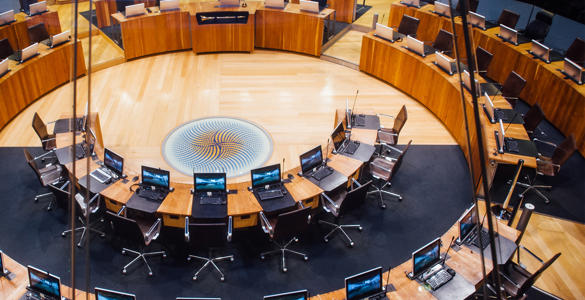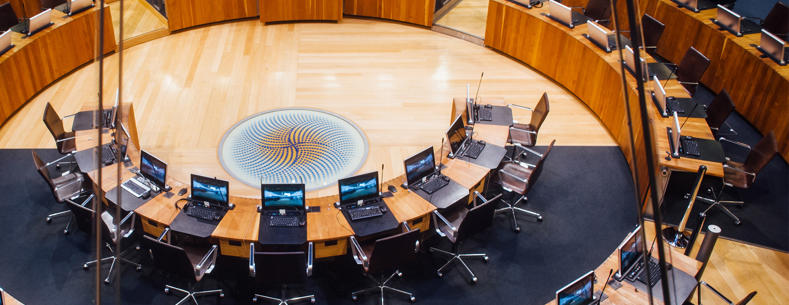The outcome of the next Senedd election could be disrupted by legal challenges over candidate quotas, a Senedd Committee is warning.
Endangering an election
The Reform Bill Committee is calling on the Welsh Government to take urgent action to avoid endangering the 2026 Senedd election.
The proposed legislation, the Senedd Cymru (Electoral Candidate Lists) Bill, aims to increase the number of women who stand for election by introducing quotas for candidates standing for political parties from the 2026 Senedd election.
A majority of the Committee, which has been hearing evidence and considering the proposed law since March, recommends that Members back the progression of the Bill to the next stage.
All Committee members agree that the uncertainty about whether the Senedd has the power to pass the Bill has to be put beyond doubt to reduce any risk to the legitimacy of the 2026 Senedd election.
The Committee says that to put the question of whether the Senedd has the power to pass the law beyond doubt, the Welsh Government should hold discussions with the next UK Government before the Senedd is asked to pass the Bill, and, if the Senedd passes the law, the Welsh Government should refer the Bill to the UK Supreme Court for consideration as soon as possible after it is passed.
Encouraging women into politics
In total, the Committee’s report makes 25 recommendations to strengthen and improve the Bill, put the question about the Senedd’s ability to pass the law beyond doubt, encourage women’s political participation, and address barriers that might deter women from putting themselves forward for selection or election.
David Rees MS, Chair of the Reform Bill Committee, said: “As a Committee, we all agree that the Senedd needs to better reflect the people it serves. We are proud to be part of a parliament which has one of the highest levels of women elected members in the world but there is still more to be done.
“While recognising that the Bill does put in place measures which could contribute to parity of representation in the Senedd, we want to see changes made to strengthen and improve the Bill.”
Mr Rees also expressed concern about the potential for disruption of the 2026 Senedd election or its outcome if the question of whether the Bill is within the Senedd’s powers is not put beyond doubt.
“It is not the Committee’s role to determine whether the Senedd has the power to pass this Bill but we are concerned about the evidence we have heard that legal challenges could potentially disrupt the 2026 election and so we are urging the Welsh Government to take steps to manage and mitigate this risk.”
Preventing corrupt practices
The requirement in the Bill for candidates to make a statement about whether they are a woman or not a woman, as part of the process of being nominated by a political party, has drawn significant attention.
A majority of the Committee agree that asking candidates this question is a proportionate means of enforcing the quota rules. However, to guard against abuse of the process, the Committee says that making a false statement must be captured by the corrupt practice offence that applies to any false information submitted on a candidate nomination form.
Commenting on this recommendation, Mr Rees added: “We've heard concerns about whether the requirement for political party candidates to state whether they are a woman or not a woman could be open to abuse.
“To alleviate these concerns, we’re calling on the government to include this statement within the corrupt practice offence that applies to other false information on nomination forms.”
The Senedd is expected to debate and vote on the general principles of the Bill on Tuesday 18 June.
About the Bill: Senedd Cymru (Electoral Candidate Lists) Bill
Senedd Cymru (Electoral Candidate Lists) Bill Stage 1 Report. Read the report




